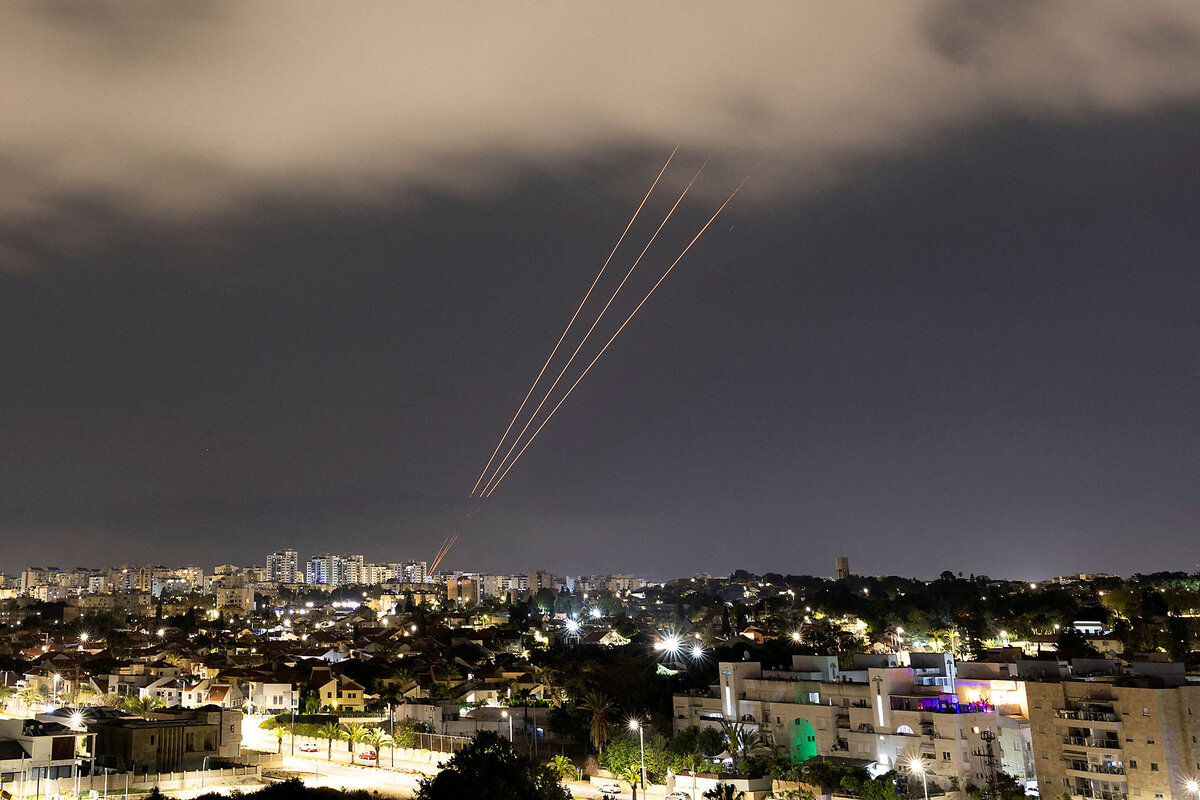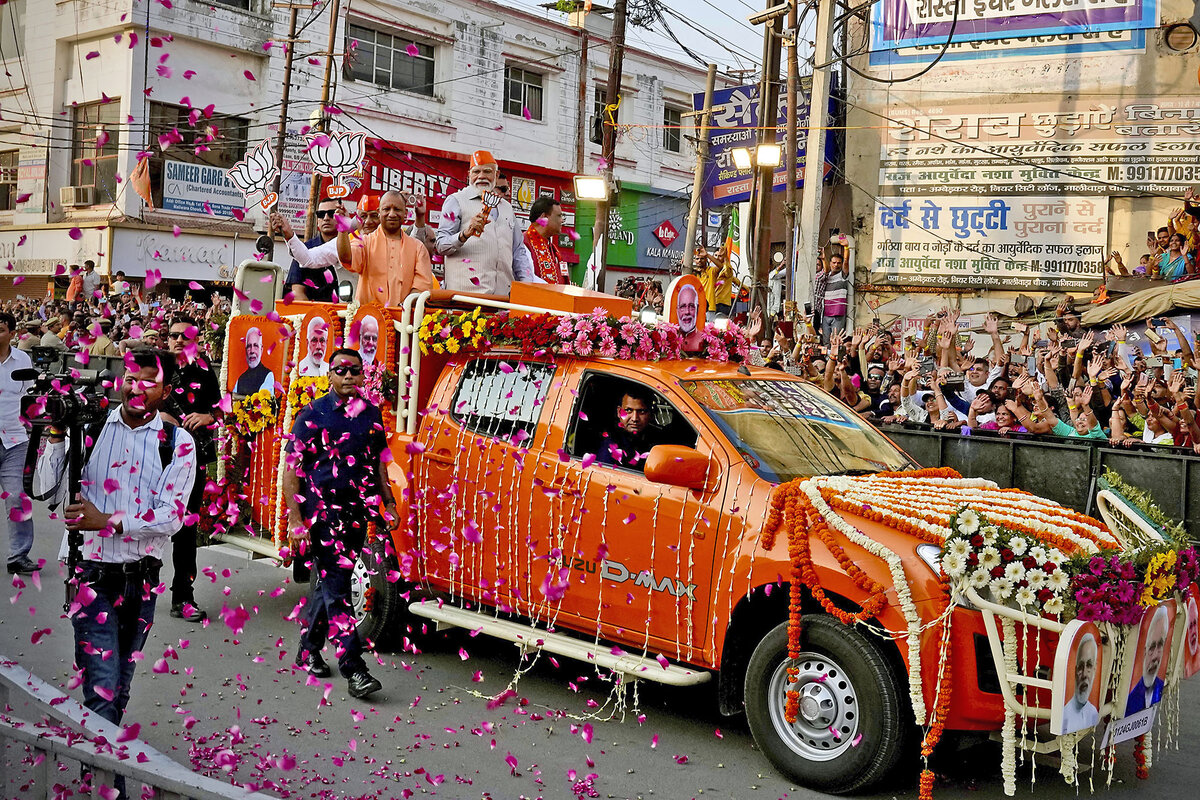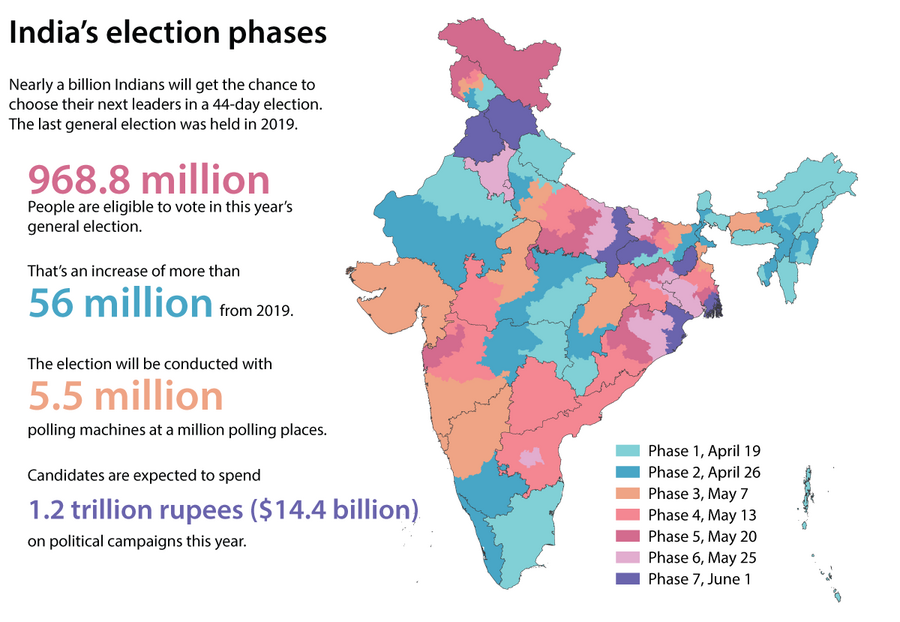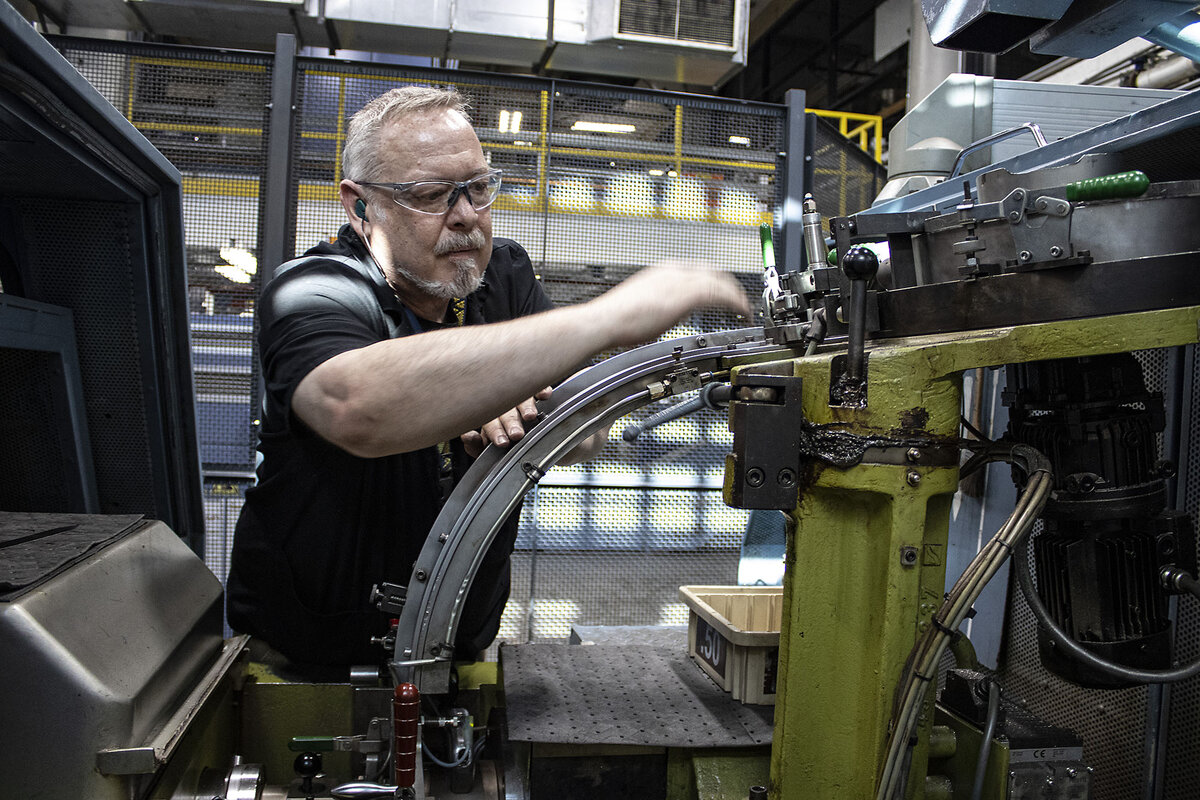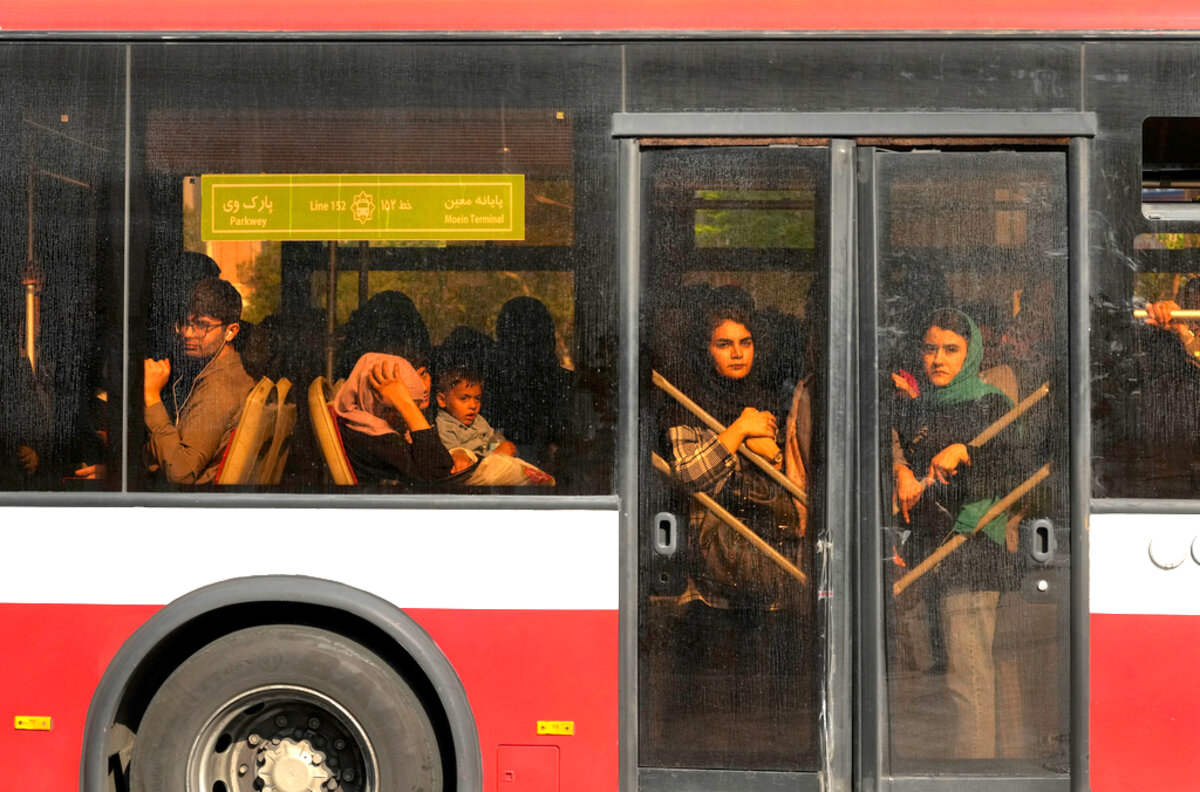With a muscular and collaborative defensive effort to help deflect Iran’s missile barrage, the Biden administration is hoping its message of “ironclad support” for Israel can prevent the escalation of the Gaza war into a regional conflict.

Why is ���Ǵ��� Science in our name?
Our name is about honesty. The Monitor is owned by The First Church of Christ, Scientist, and we’ve always been transparent about that.
The church publishes the Monitor because it sees good journalism as vital to progress in the world. Since 1908, we’ve aimed “to injure no man, but to bless all mankind,” as our founder, Mary Baker Eddy, put it.
Here, you’ll find award-winning journalism not driven by commercial influences – a news organization that takes seriously its mission to uplift the world by seeking solutions and finding reasons for credible hope.
Explore values journalism About usAlready a subscriber? Log in
Already have a subscription? Activate it
Ready for constructive world news?
Join the Monitor community.
SubscribeMonitor Daily Podcast
- Follow us:
Readers want to trust the news they consume – trust the ways in which stories are chosen, sourced, and put in context. In other words, they want the tools they need to draw their own informed conclusions. Yet we know that trust in the media has frayed badly – which is particularly concerning in a consequential year of elections; wars in the Middle East, Ukraine, and elsewhere; and profound societal divisions.
The Monitor aims every day to earn your trust. To help us do that, we asked outside experts to evaluate our work. You’ll find an article today from the group Trusting News, sharing what it’s observed. Take a read. Do you agree with its findings? Please share your thoughts with Editor Mark Sappenfield at editor@csmonitor.com.
Already a subscriber? Log in
Help fund Monitor journalism for $11/ month
Monitor journalism changes lives because we open that too-small box that most people think they live in. We believe news can and should expand a sense of identity and possibility beyond narrow conventional expectations.
Our work isn't possible without your support.
Today’s stories
And why we wrote them
( 5 min. read )
Today’s news briefs
• Iran claims it warned of attack: Iran’s foreign minister said Sunday that Tehran gave neighboring countries and the United States 72 hours’ notice of its drone and missile attack on Israel. A White House official said the statement was “absolutely not true.”
• Top U.S. diplomat meets Chinese counterparts: The meeting to discuss Middle East developments, the South China Sea, and Taiwan issues is the latest effort by the two countries to stabilize rocky ties.
• Tesla plans layoffs: CEO Elon Musk detailed plans to lay off a tenth of its workforce as it tries to cut costs after reporting dismal first-quarter sales, media outlets reported Monday. The layoffs could affect about 14,000 workers.
• Poorest nations getting poorer: Half of the world’s 75 poorest countries are experiencing a widening income gap with the wealthiest economies for the first time this century, the World Bank said Monday.
( 4 min. read )
The so-called hush money case has been billed as one of the less important lawsuits facing former President Donald Trump. But it’s the one that is underway – and it goes beyond payments over an alleged affair.
( 3 min. read )
Indians head to the polls this week for one of the world’s largest, longest, and most expensive elections. Here’s what you need to know before it starts.
( 5 min. read )
The U.S. Mint at Denver cranks out $1 million a day in coins. In an era when “frictionless” payment implies distance from human touch, there’s still value in having cash “in hand.’’
( 5 min. read )
The Monitor has long respected the work of Trusting News, which aims to help news organizations build trust with readers. So as part of our Rebuilding Trust series, we asked them: Is the Monitor trustworthy? Here’s their response.
The Monitor's View
( 2 min. read )
This past weekend, when Iran attacked Israel directly for the first time, reaction among Iranians was not exactly what the regime in Tehran expected. Yes, many people rushed to buy gasoline and food, fearing a wider war. Some expressed a deep dread of war, recalling a 1980s conflict with Iraq. Yet one common response, expressed online and in street graffiti, was hope that Israel would somehow bring down the regime.
That sentiment was so prevalent that Iran’s rulers quickly issued a notice urging citizens to report any support of Israel, saying it was a crime.
For all the gloom among Iranians – about the economy, suppression of women, and Iran’s role in regional conflicts – they show an independent streak that’s evident in a constant redefining of their nation’s identity. Well before the weekend attack, for example, one poll showed more than a third of people have a positive view of Israel.
Years of protest by Iranians in favor of the freedom to choose their own government has led to a more inclusive nationalism. One prominent critic, the exiled soccer star Ali Karimi, who has 15 million Instagram followers, uploaded a picture after the attack on Israel that stated, “We are Iran, not the Islamic Republic.”
Perhaps the biggest critic who remains free in Iran is Shaikh Abdol-Hamid, the top Sunni leader in a country controlled by Shiite clerics. In a speech last month, he said, “Today, Iranians love each other more than ever.” He asked for an inclusive government that respects the will of all Iranians.
“We share common interests with all people of the world,” he added. “We respect and love all people.”
Iran’s strength over decades has been its ability to fuse the identities of many faiths, ethnicities, and languages into a plurality that embraces one country. The current Islamic regime, like the secular monarchy before it, has not been able to impose a singular identity from on high. If many Iranians extend a welcoming hand to Israel, that is simply part of their identity.
A ���Ǵ��� Science Perspective
Each weekday, the Monitor includes one clearly labeled religious article offering spiritual insight on contemporary issues, including the news. The publication – in its various forms – is produced for anyone who cares about the progress of the human endeavor around the world and seeks news reported with compassion, intelligence, and an essentially constructive lens. For many, that caring has religious roots. For many, it does not. The Monitor has always embraced both audiences. The Monitor is owned by a church – The First Church of Christ, Scientist, in Boston – whose founder was concerned with both the state of the world and the quality of available news.
( 3 min. read )
Getting to know our spiritual nature as God’s children – and honestly striving to live consistently with that nature – empowers us to be and do good, and to know our God-given worth.
Viewfinder
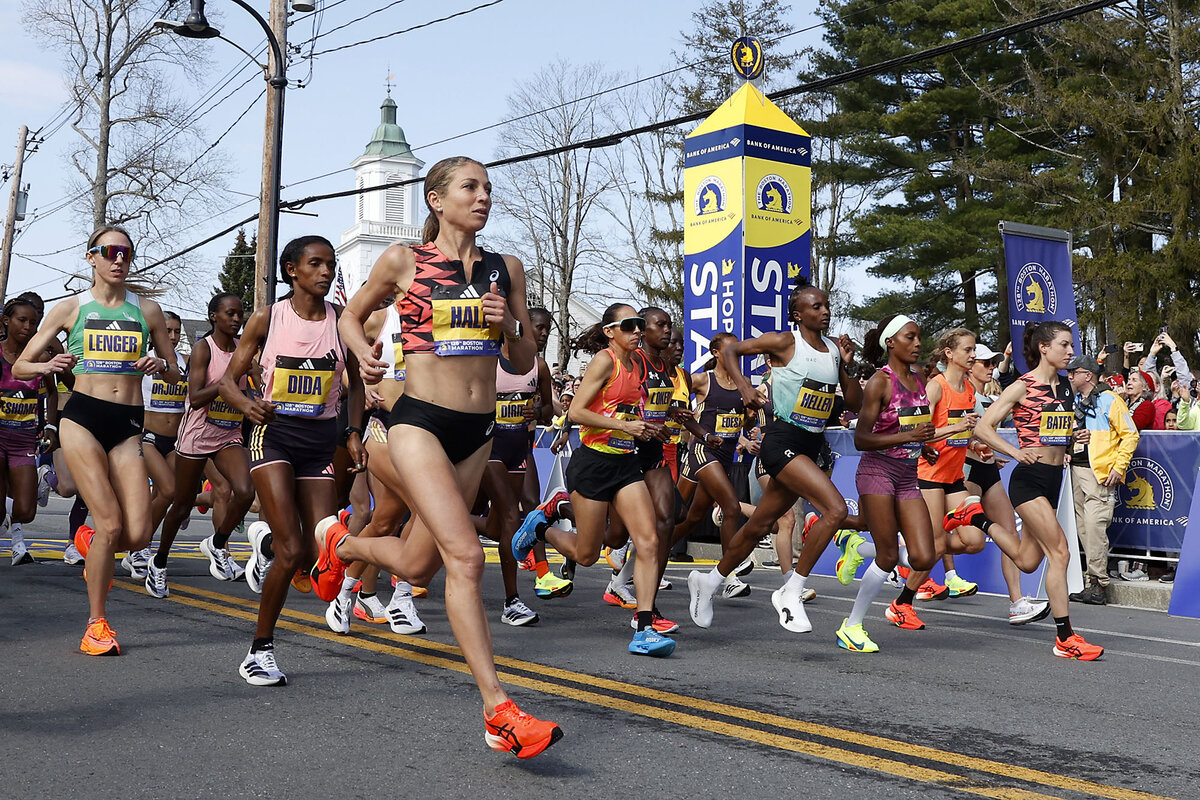
A look ahead
Thank you for starting your week with us. Tomorrow, staff writer Cameron Pugh will share an interview with a playwright about adapting the beloved young-adult classic, “The Outsiders,” into a Broadway musical.
And we have an editor’s note: An article from the April 10 Daily, “Exhibit with 700 artifacts aims to change Holocaust denial,” included a 2023 Economist/YouGov survey that said about 20% of young Americans were Holocaust deniers. The opt-in methodology used in the survey is flawed, a Pew Research Center found. Young respondents to such polls are “far more likely to say the Holocaust was a myth than those surveyed by other methods,” The Economist said in a 2024 editor’s note.




